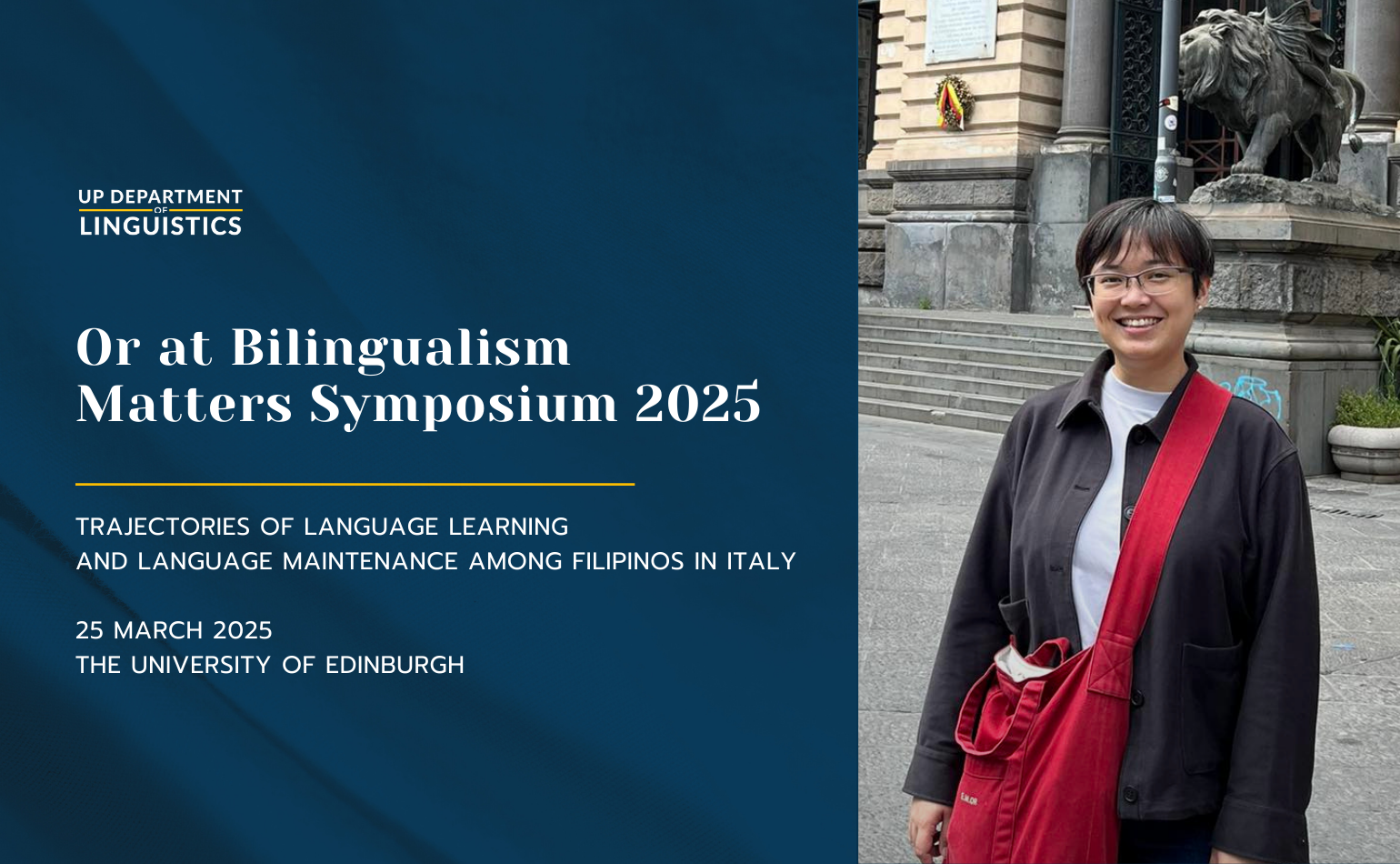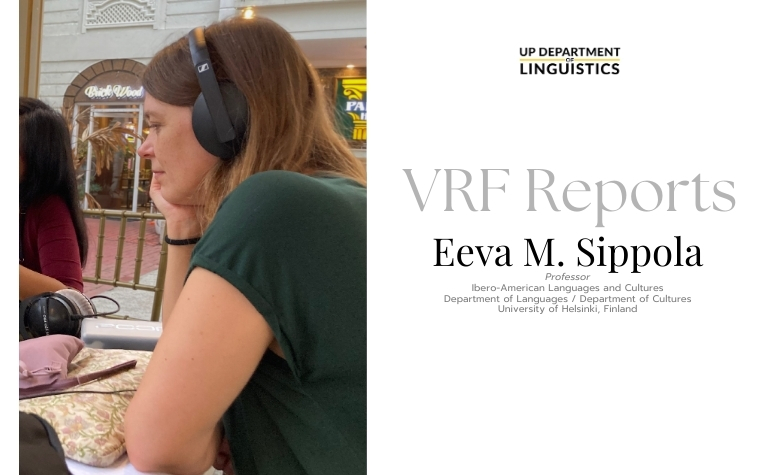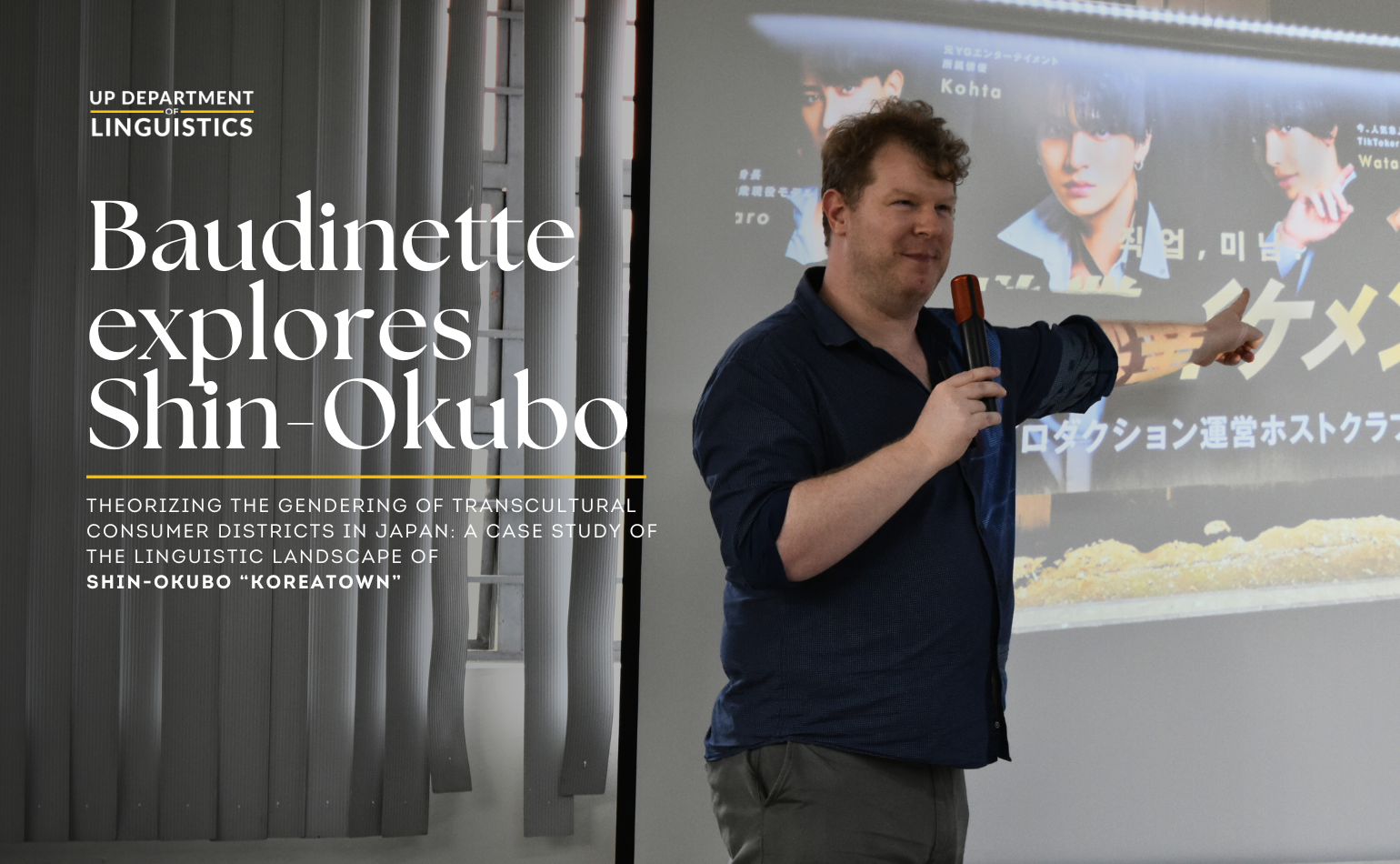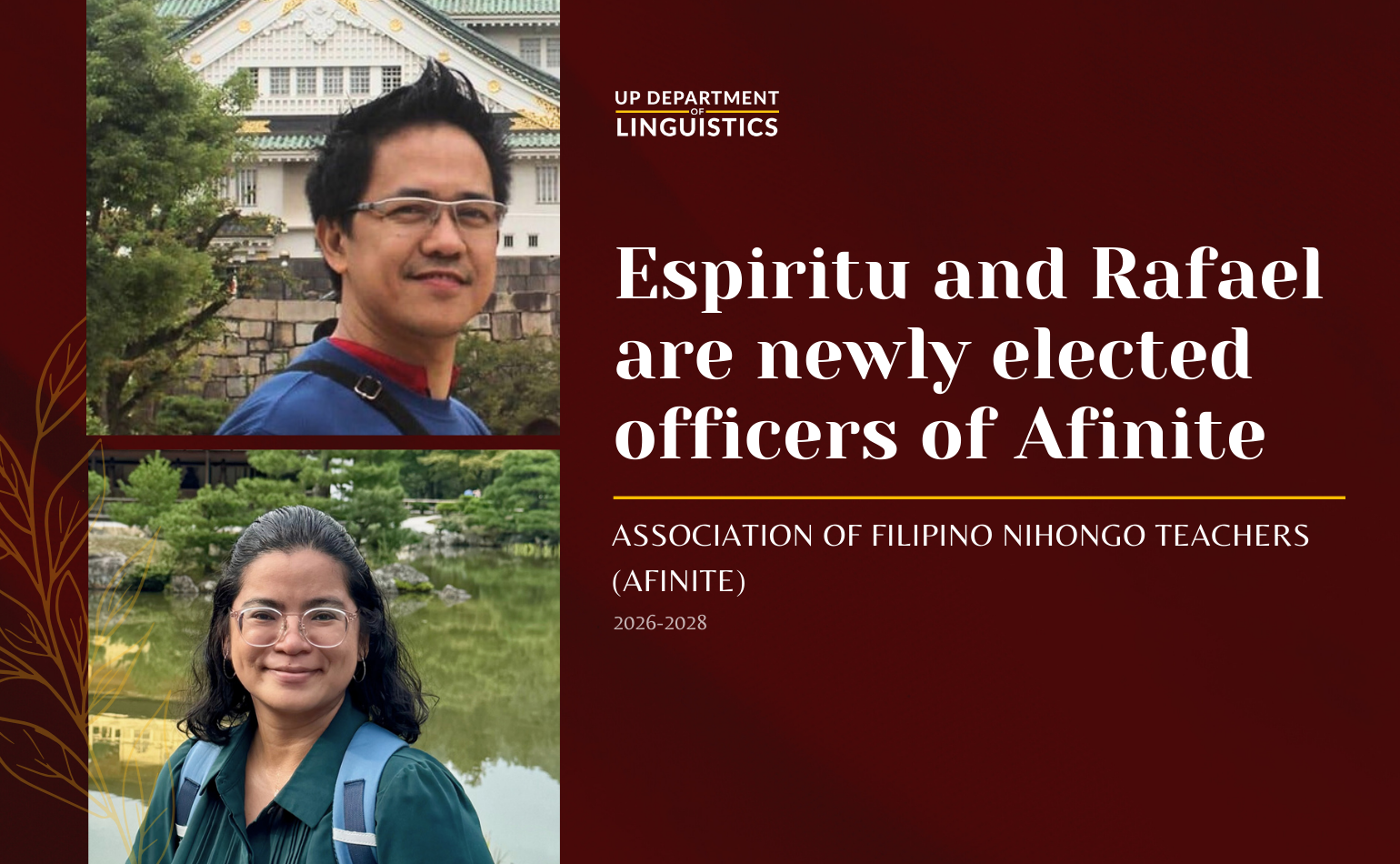
Asst. Prof. Elsie Marie Or presented her poster, “Trajectories of Language Learning and Language Maintenance among Filipinos in Italy,” at the Bilingualism Matters Symposium 2025. Or is currently working towards her doctorate degree at the University of Naples, L’Orientale where she focuses on documenting the multilingual practices of Filipino migrants in Italy.
Or’s abstract may be read below:
Trajectories of Language Learning and Language Maintenanceamong Filipinos in Italy
Based on narratives and ethnographic observations of first-, 1.5- and second-generation Filipinos residing in the Campania region of Italy, this study aims to illustrate how attitudes, linguistic ideologies, and external societal contexts influence multilingual development and the enforcement of explicit or implicit family language policies.
While several studies have been conducted which look into heritage language maintenance and linguistic attitudes and practices of members of Filipino migrant communities (e.g., Lising, 2022; Lin, 2019; Gu and Tong, 2019; Dumanig, David, and Shanmuganathan, 2013; Axel, 2011; and Yamamoto, 2008), most of these have been conducted in countries like the United States and Australia where the dominant language is English, one of the official languages in the Philippines, or in neighboring countries like Hong Kong and Japan, which also share extensive historical and cultural affinity with the Philippines. The situation of Filipino migrant communities in Europe, on the other hand, remains under-documented and they are currently among the groups of people that are referred to as “new linguistic minorities” in Europe (Mazzaferro, 2018; Moro and Russo, 2024). Meanwhile, Bose et al (2023) also report in their survey of studies on family language policies among migrant communities published from 2004 to 2022 that a large proportion of these studies focused on Chinese, Korean, and Russian migrants, and that there is a noticeable lack of studies concerning members of other large migrant groups including migrants from the Philippines, which is among the top countries of origin of international migrants (World Migration Report, 2020).
The present study thus seeks to contribute to our current understanding of language use and attitudes in migration contexts by turning a spotlight on Filipino migrants in Italy and documenting the extent to which their situation reflects findings of previous studies done in other research locales. While we expect that linguistic beliefs and choices of Filipinos in Italy will similarly be motivated by their understanding of language learning processes (which is relevant to the family language policies that they adopt) and influenced by economic and social pressures, as well as the availability of access and resources that could facilitate intergenerational language transmission, the study also aims to provide a preliminary sketch of how factors specific to Italian society and the level of familiarity that Filipinos generally have about Italian language and culture influence their trajectories of Italian language acquisition and the maintenance of their mother tongues.
The conference “is an interdisciplinary conference organised by Bilingualism Matters. It is open to researchers as well as practitioners, irrespective of their affiliation with Bilingualism Matters. The BMS aims to stimulate a productive dialogue between researchers in different academic disciplines and practitioners in different sectors of society.”
Published by UP Department of Linguistics



